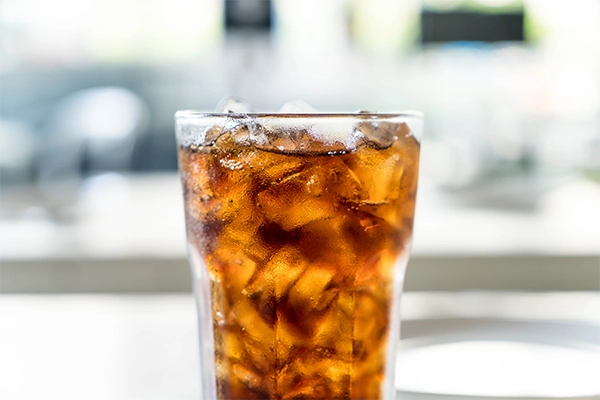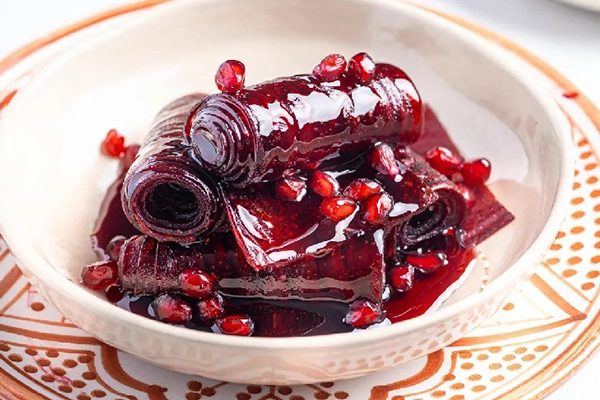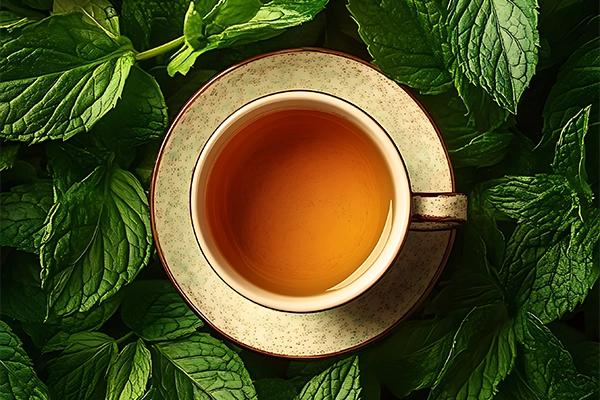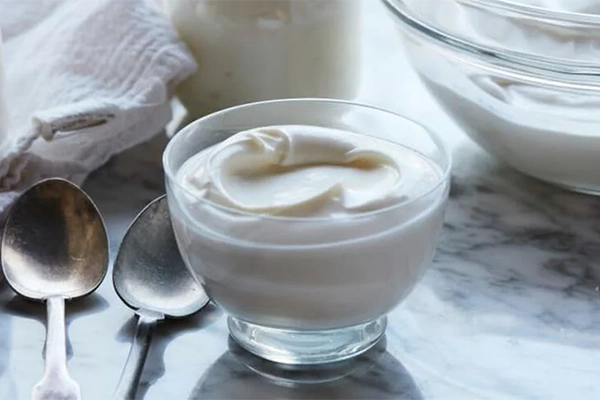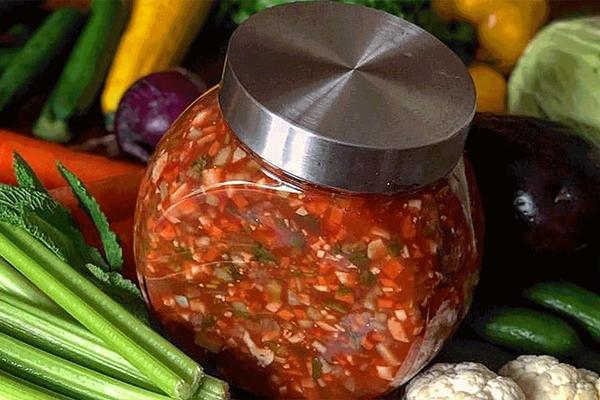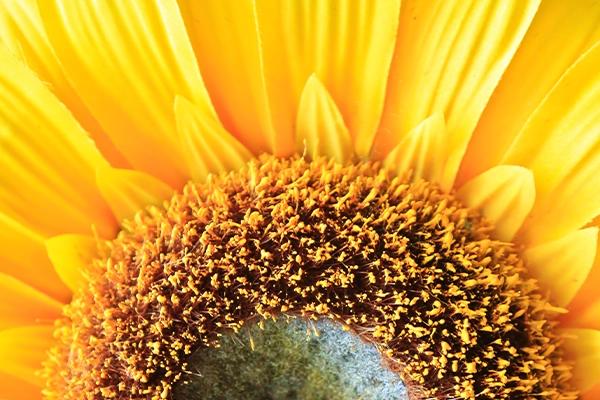Cold tea, which is also sometimes called ice tea, is one of the popular and cooling drinks that can refresh the body on hot summer days. This drink, in addition to its pleasant taste, has various health benefits and can be a healthier alternative to high-calorie and sweet drinks. In this article, we discuss the iced tea benefits, its caffeine content, its difference from coffee, and also tips on its consumption during pregnancy.
Iced tea benefits
1. Antioxidants: Iced tea, especially black tea and green tea, contains a large amount of antioxidants that help reduce oxidative stress and protect cells. The antioxidants in iced tea can help reduce the risk of heart disease, cancer, and premature aging.
2. Strengthening metabolism: The caffeine in cold tea helps to increase the body’s metabolism and can be effective in the fat burning process. This feature has caused some people to use iced tea to lose weight instead of other caffeinated drinks such as coffee.
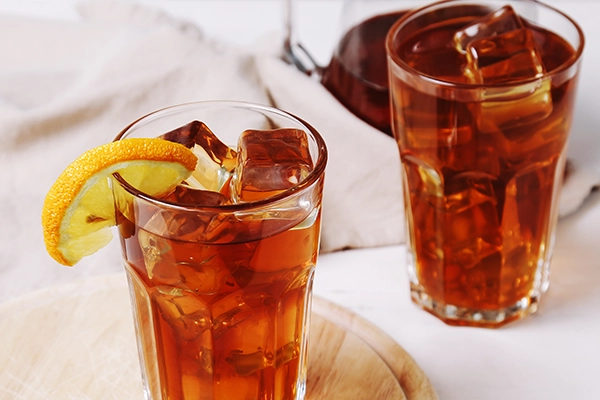
3. Body hydration: Cold tea, like water, helps to hydrate the body and can be a good choice for providing body fluids on hot days. In addition, one of the iced tea benefits is that it has fewer calories than sugary drinks, especially if it is consumed without sugar or other additives.
4. Relaxation and stress reduction: Cold tea can help to relax and reduce stress. Some types of cold tea, especially green tea, contain theanine, which has a relaxing effect.
Iced tea caffeine and its caffeine content
The amount of caffeine in iced tea depends on the type of tea and the time it is brewed. Typically, iced tea made from black tea contains 40 to 70 mg of caffeine per cup (240 ml), while iced green tea has 15 to 30 mg of caffeine. Compared to coffee, tea has significantly less caffeine. A regular cup of coffee has between80 and 100 mg of caffeine, so those looking for less caffeine can substitute iced tea for coffee.
Caffeine comparison of iced tea with coffee shows that both drinks contain caffeine, but its amount and effect in the body are different. For those seeking caffeine, knowing the differences between iced tea caffeine and coffee can help make a better choice.
1. The iced tea caffeine content significantly lower compared to coffee. A cup of iced tea (240 ml) usually contains about 40-70 mg of caffeine, while a cup of coffee of the same volume contains 80-100 mg of caffeine. This difference shows that coffee has almost twice as much caffeine as iced tea.
2. The effect of caffeine on energy and concentration: The caffeine in coffee has a faster and stronger effect on energy and concentration, while the iced tea caffeine usually works in a milder and gradual way. People looking for a quick energy boost may prefer coffee, but iced tea is better for those who need a mild, long-lasting effect.
3. Effects of caffeine: Due to the higher amount of caffeine in coffee, it is more likely to cause insomnia, anxiety and heart palpitations, while Effects of caffeine consumption of iced tea are less. For people who are sensitive to the effects of caffeine, cold tea is a better option.
4. Iced tea calories and coffee: Both drinks are naturally low in calories, but this depends on additives such as sugar and milk. Iced tea without sugar is almost calorie-free, and coffee without sugar and cream is very low in calories.
5. Iced tea during pregnancy: Due to the less caffeine in iced tea, this beverage is a more appropriate choice than coffee during pregnancy, in moderation. However, it is still recommended that pregnant women consult a doctor before regular consumption.
In conclusion, Comparison of Iced Tea Caffeine and Coffee shows that iced tea is a good choice for those looking for a drink with less caffeine and milder effects, while coffee can provide more energy and focus due to its higher caffeine content. .
Iced tea calories
iced tea Calories depend on the amount of sugar and other additives. Homemade sugar-free iced tea is almost calorie-free, which is one of the iced tea benefits, but many industrial and ready-made iced teas contain sugar and artificial sweeteners, which can significantly increase the calories. To take advantage of the iced tea benefits and control its calories, it is recommended to consume iced tea at home without sweet additives.
Iced tea calories: amount of calories of various types of iced tea
Pure cold tea (no additives)
– Simple cold tea: 0 calories
– Iced black tea: 0-2 calories per cup
– Iced green tea: 0-2 calories per cup
Iced tea with sweeteners
– Iced tea with sugar: 100-150 calories per cup
– Cold tea with honey: 60-80 calories per cup
– Iced tea with artificial sweetener: 0-5 calories per cup
Fruity iced tea
– Iced peach tea: 80-120 calories per cup
– Iced lemon tea: 70-90 calories per cup
– Iced raspberry tea: 80-100 calories per cup
Commercial cold tea
– Regular bottled iced tea: 90-130 calories per cup
Diet iced tea: 0-10 calories per cup
– Semi-sweet iced tea: 50-70 calories per cup
Important points about iced tea calories
1. Additives increase calories:
– Sugar: 16 calories per spoon
– Milk: 20 calories per spoon
– Honey: 21 calories per spoon
2. Calorie reduction methods:
– Using natural low-calorie sweeteners
– Reducing the amount of added sugar
– Selection of diet versions
3. Health recommendations:
– Use low-calorie versions to control weight
– Limit sugar consumption
– Pay attention to the label of commercial products
iced tea during pregnancy
One of the common questions is about the consumption of iced tea during pregnancy. The amount of caffeine during this period should be balanced, because excessive consumption of caffeine can have negative effects on the fetus. Since iced tea has less caffeine than coffee, it can be consumed in moderation by pregnant women. Of course, it is better to consult a doctor before continuously consuming iced tea during pregnancy.
Is it ice tea or iced tea?
Sometimes the term “iced tea” is used instead of cold tea. In fact, both terms are used to refer to this cool drink. The term “ice tea” is used in English and it means that the tea is frozen or cooled, but in Farsi, the term “cold tea” is used more often, which has the same meaning.
Side effects of caffeine consumption
Effects of caffeine consumption can be different based on the amount of consumption and a person’s sensitivity to this substance. While caffeine helps increase energy and concentration, consuming too much of it can cause various problems and have negative health effects.
1. Insomnia and sleep disorders: One of the most common side effects of caffeine is insomnia. Excessive caffeine consumption, especially late in the day, can lead to difficulty falling asleep or poor quality sleep. People who are allergic to the iced tea caffeine content of tea may also experience sleep problems by consuming too much.
2. Increasing anxiety and stress: Caffeine can increase anxiety and stress by stimulating the central nervous system. These effects are especially greater for those with a history of anxiety, and continuous consumption of tea or coffee with high caffeine can aggravate these conditions. For this reason, comparison of iced tea caffeine vs coffee shows that iced tea has milder effects due to its lower caffeine content.
3. Digestive problems: Iced tea calories are low, but the caffeine in it may cause digestive problems for some people. These problems include heartburn and diarrhea caused by caffeine’s stimulation of the digestive system.
4. Increase in blood pressure: High consumption of caffeine can lead to a temporary increase in blood pressure. This condition is especially dangerous for people with high blood pressure and can threaten their heart health.
5. Caffeine Addiction: Long-term and heavy use of caffeinated beverages such as coffee or iced tea can lead to caffeine dependence. In such a situation, a person may experience headaches, fatigue and concentration problems if they do not consume caffeine.
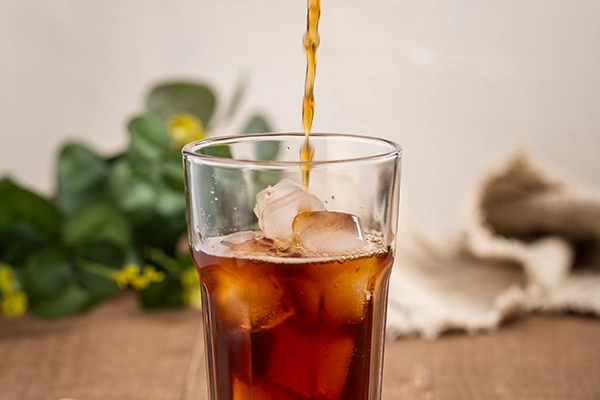
6. Effects of caffeine during pregnancy: During pregnancy, the effects of cold tea are more than the iced tea benefits, it is better to limit caffeine consumption, because it can have negative effects on the health of the fetus. Consumption of iced tea during pregnancy, as long as it is moderate and contains little caffeine, does not cause a problem, but it is still better to consult a doctor.
In general, caffeine can have benefits such as increased energy and concentration, but if you consume too much, it can have a negative effect on your health.
Content
The Iced Tea benefits have made this drink a popular and healthy option for people looking for cooling, mild flavor and antioxidant properties. comparison of iced tea caffeine vs coffee shows that iced tea has less caffeine and has milder effects on the body, while coffee provides a faster increase in energy and concentration due to more caffeine. Iced tea calories are very low if consumed without sugar, making it a suitable drink for weight control. Also, iced tea during pregnancy with less caffeine can be a more suitable option than coffee, although its consumption should be with the doctor’s opinion. Overall, some of the iced tea benefits are that it is a healthier alternative to caffeinated and high-calorie beverages such as coffee and sugary soft drinks, and can help with hydration, boosting metabolism, and relaxation.
